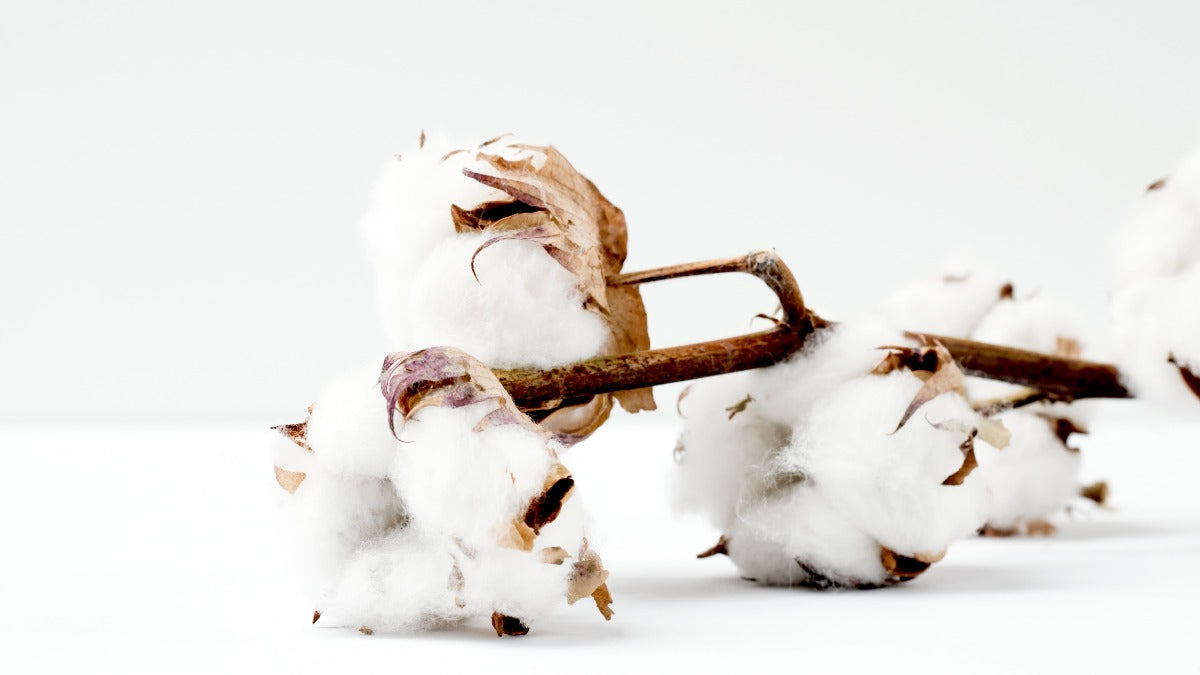What is organic cotton and why is it important to eco-friendly textiles?

Organic cotton: you've seen it everywhere. But why is it all the rage and what does it mean in the production of eco textiles? We thought you'd never ask.
Let's start with the basics.
COTTON: noun. soft white fibrous substance that surrounds the seeds of a tropical and subtropical plant and is used as textile fiber and thread for sewing.
ORGANIC adjective. (of food or farming methods) produced or involving production without the use of chemical fertilizers, pesticides, or other artificial agents.
Organic cotton is like conventional cotton but made without chemicals. It is found today in many everyday products such as our clothes, shoes, home accessories, toys, diapers for children, and in beauty products.
The background
The textile industry is one of the most polluting, and cotton fiber represents more than half of the world's consumption of textile fibers. This widely used product is therefore one of the most polluting, for the planet, but also for humans. According to the WHO, nearly 22,000 cotton farmers die each year from exposure to toxic products. In addition, cotton cultivation represents only 2.4% of the agricultural area, but uses nearly one quarter of the pesticides sold in the world. YIKES!
Despite this, conventional cotton remains much more popular, with more than 17 billion tons sold per year, compared to only 2 million tons of organic cotton.

So is organic really better?
YES!
By going organic, pesticides and chemical fertilizers are replaced by natural compost, requires half as much water as traditional cotton. The end-result is cotton that is softer, more flexible, and way kinder to the planet. You don't need GMOs to be softer or thicker. Goodbye chemical fertilizers and pesticides, hello natural compost!
It is important to note that organic cotton is not easy to develop, and its production is not feasible everywhere. Certified organic cotton can be found in 22 countries, but almost 90% of world production comes from top 5 producing countries: India, China, Kyrgyzstan, Turkey and Tajikistan. In other words, local production isn't always feasible; organic cotton often travels a long way to become part of your wardrobe. While this isn't eco-friendly, making the transition to organic is the right step for our planet.
Is organic more expensive?
Consuming responsibly is often synonymous with "breaking the bank." Organic, recycled materials, and organic materials, often come from farther away, are more rare, and cost more to produce. But, by supporting these products, we are encouraging the development of eco-responsible solutions that will hopefully, drive down the price. And can you really put a price on fair working conditions, a reduced carbon footprint, and the protection of our planet? We don't think so. In the end, if we choose to consume less, but better, these costs balance out and the demand for responsible fashion products will rise.
How do you know if cotton is organic?

A handful of labels exist to certify that organic production meets certain standards. GOTS (Global Organic Textile Standard) is the most prominent certification, and ensures that organic cotton has been treated sustainably, from the harvest of raw materials to labeling. The conditions for certification are as follows: the textile product must contain at least 95% certified organic fibers to obtain the term "organic." To be defined as a product "composed of organic fibers," 70% of certified organic fibers are required.
In addition, the OCS (Organic Content Standard) applies to any non-food product containing 95 - 100% organic materials. To do this, the organization verifies the presence and quantity of organic materials in a final product and the raw materials are traced from their source to the final product.
Summary
In summary, the advantages of organic cotton are: less pollution, water preservation, protection of the farmers who cultivate cotton, and certifications that ensure environmental standards during the production of the material. While not without drawbacks, we believe in using organic cotton over other materials until other, better solutions are found.




